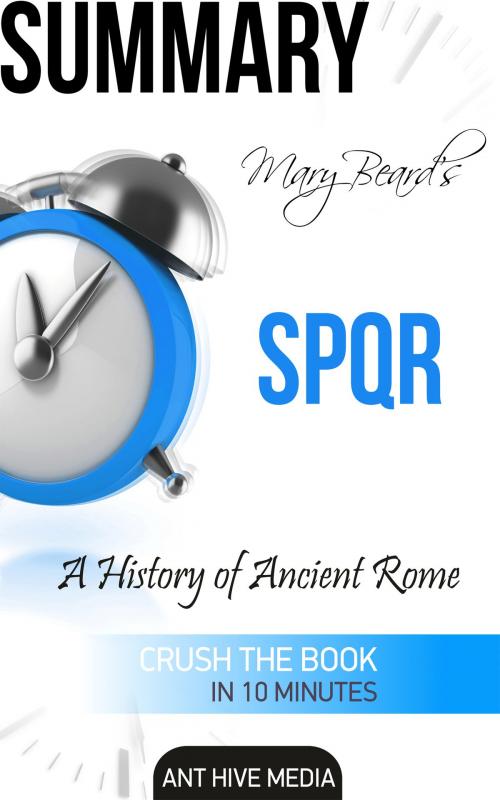| Author: | Ant Hive Media | ISBN: | 9781310002076 |
| Publisher: | Ant Hive Media | Publication: | March 22, 2016 |
| Imprint: | Smashwords Edition | Language: | English |
| Author: | Ant Hive Media |
| ISBN: | 9781310002076 |
| Publisher: | Ant Hive Media |
| Publication: | March 22, 2016 |
| Imprint: | Smashwords Edition |
| Language: | English |
This is Roman history roughly from its mythological dawning about 753 BC to the time when free adult males within the Roman Empire were declared by Emperor Caracalla as citizens of Rome in 212 CE.
Beard starts the history of ancient Rome with an account of how Lucius Sergius Catalina (Cataline) conspired against Rome and how it was foiled by the Senate. The book uses the conspiracy as a springboard to discuss various aspects of Roman civilization including, citizenship, its military as well as Rome’s perceptions of social structures such as slavery and religion including the position of women in society. Historical figures that greatly influenced the development of the empire are also discussed.
The book proposes that the rise of the Roman Empire from a small settlement near the Tiber to the most powerful empire in ancient history was due to Rome’s receptiveness to try new ideas. Likewise Beard believes that Roman civilization is still very relevant to our modern times, particularly, on current day discourses on freedom and the protection of the state.
“SPQR” is the abbreviated form of Senatus Populusque Romanos meaning “the Senate and the People of Rome” which is ubiquitously etched in most Roman manuscripts, even objects and structures.
Available in a variety of formats, this summary is aimed for those who want to capture the gist of the book but don't have the current time to devour all 608 pages. You get the main summary along with all of the benefits and lessons the actual book has to offer. This summary is not intended to be used without reference to the original book.
This is Roman history roughly from its mythological dawning about 753 BC to the time when free adult males within the Roman Empire were declared by Emperor Caracalla as citizens of Rome in 212 CE.
Beard starts the history of ancient Rome with an account of how Lucius Sergius Catalina (Cataline) conspired against Rome and how it was foiled by the Senate. The book uses the conspiracy as a springboard to discuss various aspects of Roman civilization including, citizenship, its military as well as Rome’s perceptions of social structures such as slavery and religion including the position of women in society. Historical figures that greatly influenced the development of the empire are also discussed.
The book proposes that the rise of the Roman Empire from a small settlement near the Tiber to the most powerful empire in ancient history was due to Rome’s receptiveness to try new ideas. Likewise Beard believes that Roman civilization is still very relevant to our modern times, particularly, on current day discourses on freedom and the protection of the state.
“SPQR” is the abbreviated form of Senatus Populusque Romanos meaning “the Senate and the People of Rome” which is ubiquitously etched in most Roman manuscripts, even objects and structures.
Available in a variety of formats, this summary is aimed for those who want to capture the gist of the book but don't have the current time to devour all 608 pages. You get the main summary along with all of the benefits and lessons the actual book has to offer. This summary is not intended to be used without reference to the original book.















